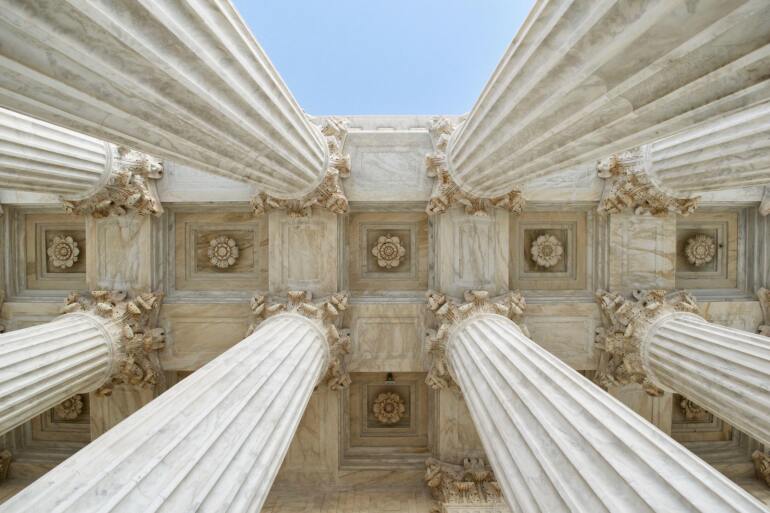Legal Update
Dec 7, 2020
More Than a Game Changer: Fourth Amendment to PREP Act Declaration Establishes Federal Jurisdiction, Bolsters Immunities, and Expands to Telehealth Countermeasures
On December 3, 2020, the U.S. Department of Health and Human Services (HHS) issued another groundbreaking amendment to the Declaration under the Public Readiness and Emergency Preparedness Act (PREP Act). The Fourth Amendment provides legal protections from suit and liability to covered persons who are combating COVID-19 which are designed to broaden access to critical services via telehealth across state lines, increase the badly needed supply of personal protective equipment (PPE), and simplify the administration of forthcoming and potentially life-saving COVID-19 vaccines.
Perhaps most significantly, the Fourth Amendment makes explicit that “there are substantial federal legal and policy issues, and substantial federal legal and policy interests, in having a unified, whole-of-nation response to the COVID-19 pandemic among federal, state, local, and private-sector entities.” This statement paves the way for defendants seeking federal jurisdiction to remove state-court cases that implicate PREP Act immunities. See Grable & Sons Metal Products, Inc. v. Darue Eng’g. & Mf’g., 545 U.S. 308 (2005) (holding that state-law claims which implicate significant federal issues allow for federal jurisdiction). It also resolves a longstanding dispute in the state and federal courts over whether the PREP Act can serve as the basis of federal-question jurisdiction, to the extent those courts now defer to this administrative agency’s interpretation of the PREP Act.
The Fourth Amendment also modifies the Declaration in the following ways, among others:
- Permits health care personnel to provide, via telehealth, Covered Countermeasures—such as COVID-19 diagnostic tests that have received Emergency Use Authorization (EUA) from the Food and Drug Administration (FDA)—for patients in a state other than the state in which the health care personnel are already permitted to practice.1
- Grants new immunity protections under the PREP Act to Covered Persons if they use on-label Covered Countermeasures2 that are authorized by the FDA to treat COVID-19, without the need to have an any contractual arrangement with the federal government.
- Authorizes new PREP Act immunity for Covered Persons who use approved respiratory protective devices that the HHS Secretary determines to be a priority for use to contend with COVID-19, without meeting the Declaration’s other restrictions, such as an agreement with the federal government.
- Expands the range of PREP Act immunity to cover potentially more health care providers who could administer eventual COVID-19 vaccines by modifying and clarifying the requisite training for certain pharmacists to order or administer COVID-19 vaccines pursuant to the Declaration. Licensed pharmacists can now satisfy the Declaration’s requirements if they have completed the immunization training that their licensing state requires for pharmacists to order and administer vaccines.
- Clarifies the scope of PREP Act immunity by, for example, making explicit that even the failure to administer a Covered Countermeasure to a particular individual can nevertheless fit within the wide reach of the PREP Act’s liability protections. This runs counter to a host of recent court cases interpreting the PREP Act’s liability protections to only apply to circumstances involving affirmative misuse of Covered Countermeasures.
- Incorporates the HHS Office of the General Counsel’s advisory opinions concerning the PREP Act and Declaration and clarifies that the PREP Act must be construed in accordance with these opinions, which we previously discussed here, here, and here.
The Fourth Amendment exemplifies HHS’s continuing efforts to broadly deploy the PREP Act—on a scale never before seen—to expand access to potentially life-saving Countermeasures to combat the COVID-19 public health emergency.
With its adoption of the HHS General Counsel’s prior advisory opinions, assertion of federal-question jurisdiction, and affirmative statements regarding the PREP Act’s application in cases of non-use of Covered Countermeasures, the Fourth Amendment has expanded the size of an already formidable shield for those who are faced with claims of loss arising out of their efforts to combat this pandemic.
Ultimately, this is more than a game changer—it potentially resets the entire game in COVID-19-related litigation.
1. While many (but not all) states have already authorized out-of-state health care personnel to deliver telehealth services to in-state patients, the Fourth Amendment preempts any state law that prohibits or effectively prohibits such a person from doing so. Nothing in the Fourth Amendment, however, preempts state laws that may allow for easier access to telehealth services.
2. The terms “Covered Persons” and “Covered Countermeasures” are defined by the PREP Act. See 42 U.S.C. § 247d-6d(i).



